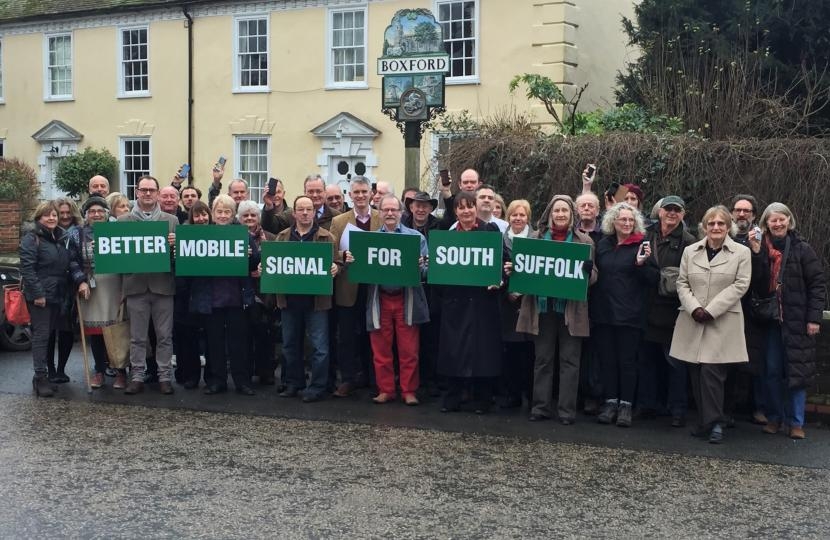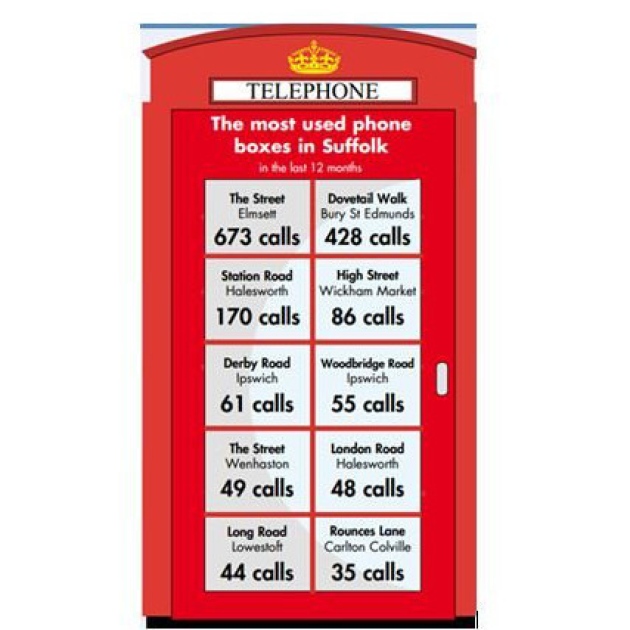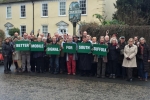
To many, public phone boxes are almost a relic of the past. Barely used in the modern mobile era, some have even been converted for other uses – such as storing life-saving defibrillators or community book swap schemes.
But there’s no chance of that happening in one tiny Suffolk village – because the mobile phone coverage there is so bad, that the public pay phone is still used hundreds of times a year.
And now villagers in Elmsett, near Hadleigh, are even fighting to save it – and they say it highlights the huge frustrations of mobile “not-spots” in many parts of the county.
BT is currently consulting with local councils about removing dozens of their “least profitable” public telephones during a series of 42-day consultations.
But while most of the county’s payphones have had only a handful of calls – and around 150 have had no calls at all – made from them during the past year, 673 calls have been made from one phone box in the centre of Elmsett.

Dennis Hill, owner of the Rose and Crown pub opposite the payphone, says the high level of calls is because there is “virtually no mobile phone signal” in the village. He claims it is “vital” to keep the phonebox, especially for emergency calls.
“In Elmsett, you notice people all the time holding their mobiles out of the window or moving around trying to get a signal.
“As a result, we often see people pulling up at the phonebox to make a call – it was out of order for a while and it was really missed. It’s right next to a school so lots of the kids who don’t have mobiles use it, too.
“If BT takes it away, it won’t be good for Elmsett in an emergency situation as was demonstrated last year when someone had a really bad accident in the village.
“The telegraph pole came down and all the wires were in the road, and the only way they could call the emergency services was via the payphone because they couldn’t get a mobile signal.
“People also use it when they are leaving the pub in the evening and can’t get a signal, to call a taxi. We must do all we can to save it before the deadline.”
Some Elmsett residents have long campaigned for better mobile coverage. However, several people protested against a mast being installed in the village.
South Suffolk MP James Cartlidge, who is behind a drive for better mobile coverage in rural parts of his constituency, said an application for a mast in Elmsett is currently with the district council. A decision is expected within the next few months.
“Many parts of south Suffolk have poor signal and that is why I have focused on it as a campaign,” Mr Cartlidge said.
“I think people increasingly rely on mobile phones but so many of our villages lack coverage.
“I understand there may be some people in Elmsett who are not happy about the proposed mast but they have to appreciate that the relatively high usage of the local payphone proves that better mobile coverage would be of significant benefit to the whole community.”
Use of phone boxes
Payphone usage has declined more than 90% in the past decade and continues to decline year on year, according to BT.
Almost a third of BT’s 54,900 payphones across the UK make less than one call a month.
Given the huge rise in mobile phone ownership in recent years, with 93% of adults owning a mobile phone, BT claims the need for a payphone service isn’t there anymore.
Ofcom’s consultation process for payphone removal applies to payphones where there’s no other payphone within 400 metres.
Local authorities are asked for consent to remove the payphone and, if it’s a traditional red call box, they have an opportunity to adopt it for heritage conservation and turn it into a community facility.
A BT spokesman said: “BT is committed to providing a public payphone service but, with usage declining by over 90% in the last decade, we’ve continued to review and remove payphones which are no longer needed.
“Any removal of payphones is carried out in strict adherence to the Ofcom guidelines and, where appropriate, with the consent of local authorities.
“As an alternative to removal, we will continue to actively promote the Adopt a Kiosk scheme to all councils whilst being committed to maintaining the payphones that remain.”
Mobile phone mast
Last year South Suffolk MP James Cartlidge launched a petition, signed by 3,700 people, asking for better coverage in Boxford – which has no mobile phone signal in the village centre.
Despite a previous application for a mast being rejected due to local opposition about the proposed location, yesterday Babergh District Council finally approved a phone mast in the village.
Mr Cartlidge said: “I am really pleased to hear this mast has finally been approved.
“Huge effort has been put into campaigning in Boxford which is a notorious ‘not-spot’ that has left many people without vital access to mobile.
“I hope the village will welcome this very positive development for their community.”
Published by the East Anglian Daily Times.

